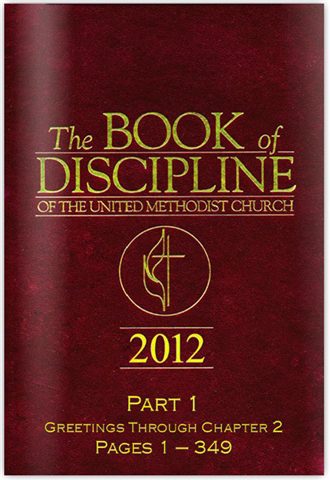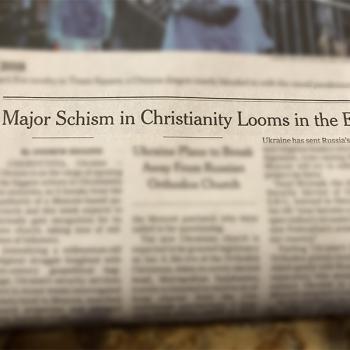
Because the members of the Judicial Council were faithful to the letter of the law, which is exactly what they are supposed to do, we now know for sure that this emperor has no clothes.
The United Methodist Church cannot be re-formed. It’s over for us with our current structure.
The Judicial Council’s decision to revoke the involuntary retirement of Bishop Earl Bledsoe over issues of violation of procedural minutia found in the Book of Discipline (not over the question of his effectiveness, which was not being ruled upon) has forever made this clear. It is over.
It’s easy to get frustrated with the Judicial Council for the rulings of the last few months. Their work has thoroughly reversed decisions made by General and Jurisdictional Conferences.
 However, I think that would be a mistake. They’ve done the United Methodist Church a huge favor. Because the members of the Judicial Council were faithful to the letter of the law, which is exactly what they are supposed to do, we now know for sure that this emperor has no clothes.
However, I think that would be a mistake. They’ve done the United Methodist Church a huge favor. Because the members of the Judicial Council were faithful to the letter of the law, which is exactly what they are supposed to do, we now know for sure that this emperor has no clothes.
They have revealed an important truth and truth does very much set us free.
Many gifted, intelligent, godly people slogged through interminable meetings seeking to follow the rules and still lead us into substantive and necessary change. We easily see those as wasted hours in light of the aftermath of the Judicial Council decisions.
Again, I say, let us receive the favor here. There is simply no sense in trying to do that kind of thing anymore. It can’t work. Period.
We either reform or die of strangulation
We are going to have to engender our own revolution/reformation or die slowly of strangulation by methods that no longer support the heart of Methodism. No one in their right mind wants to die this way. But we are now at the crossroads and must choose: strangulation or revolution?
I wish we didn’t have to do this. Revolutions hurt, and leave scarred landscapes and burnt-out buildings. People die. Pain becomes our middle name. Sad tears accompany nearly every decision. Passionate arguments punctuate every discussion.
But the structure has cracked and the un-repairable foundation now sits exposed. John Wesley was an autocratic organizational genius who could do to the clergy under his command and the churches of his movement things that are now not just unworkable, but also unthinkable.
And our own efforts at tinkering with the denomination we inherited? Well, we’ve danced around it, modified it, adapted it and culturally-contexted it. Time to stop. It’s over.
What do we have left? We have the most powerful theology of grace that has ever infused the human race. We have words about God that tell us that God is ever before us, wooing the world into repentance, relationship and wholeness. We have an understanding about our redemption and forgiveness that forever sets us free. And we actually do believe that we can, in cooperation with the Spirit of God, be perfected in love.
That’s what we have.
All the rest of it, our pensions and health insurance concerns, our episcopacy and our itinerancy, our megachurches and our itsy-bitsy rural congregations, our connection, our conferences, our metrics and our vestments, are just window dressing.
We have grace.
The question we now ask: Can grace-infused theology hold us together in the revolution that is now necessary? Can we plant ourselves firmly on opposite sides of huge issues, pray, argue and fight our way through this, and see a healthy and actually united Methodist church born yet once more? Can we free ourselves from the death strangle of our current methods and still be Methodists?
If we can’t, or we won’t, then we need to die anyway. We deserve no better than to slowly lose oxygen as we wander forever lost through the dead-end maze known as the Book of Discipline. If we can and if we will, then we will unleash the Spirit of God yet once more.
It’s time.












